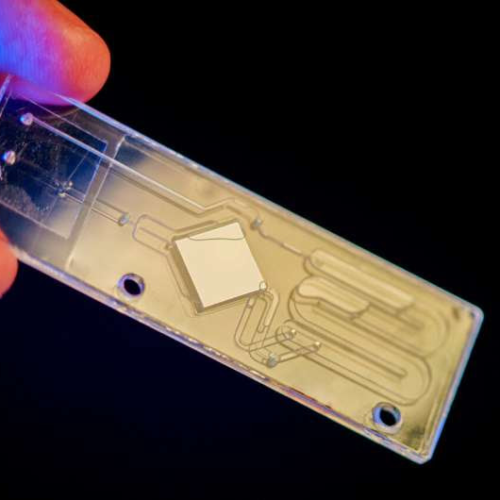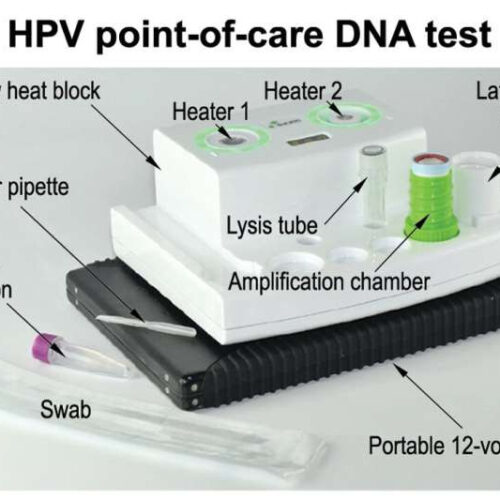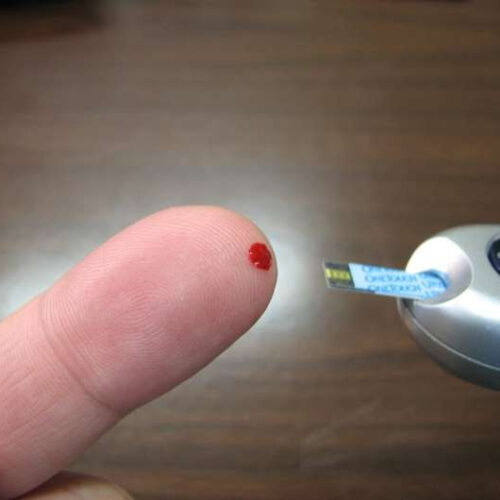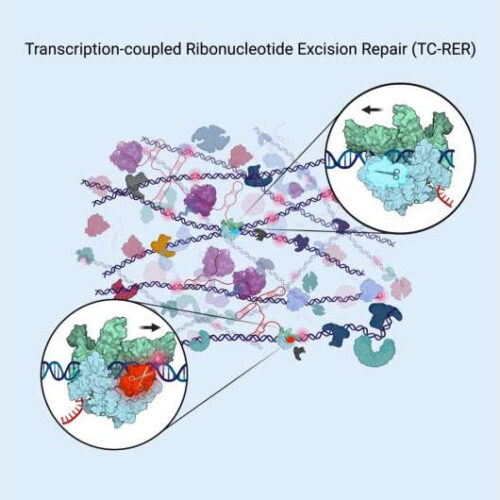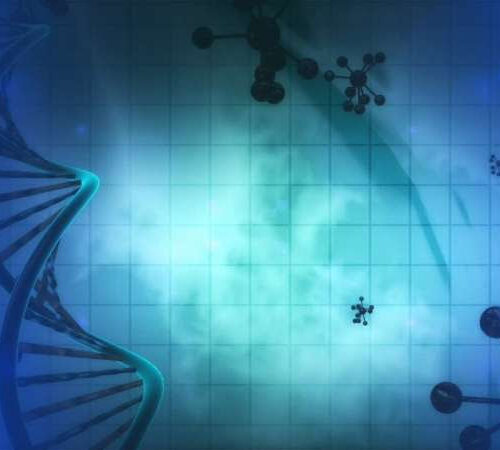by Ioana Patringenaru, University of California – San Diego Researchers use this chip to analyze the microbes present in whole blood samples. Credit: David Baillot/University of California San DiegoA new analysis method can detect pathogens in blood samples faster and more accurately than blood cultures, which are the current state of the art for infection diagnosis....
Tag: <span>DNA</span>
DNA Origami Folded Into My Tiny Motor
According to research published in the journal Nature Nanotechnology, scientists have created the world’s first working nanoscale electromotor. The science team designed a turbine engineered from DNA that is powered by hydrodynamic flow inside a nanopore, a nanometer-sized hole in a membrane of solid-state silicon nitride. Scientists have created the world’s first working nanoscale electomotor....
Scientists on the brink of cure for heart disease – with drugs that ALTER your DNA
Are we on the brink of a cure for heart disease? That was the question being whispered by normally cautious cardiologists at the American Heart Association annual conference in Philadelphia last week. Over three packed days, a raft of game-changing scientific discoveries have been unveiled by the world’s leading specialists – many of which will...
DNA test could broaden access to cervical cancer screening
by Jade Boyd, Rice University A low-cost, point-of-care DNA test for HPV infections that was invented at Rice University delivers results in 45 minutes and requires just two pieces of equipment, a small centrifuge (not shown) that costs about $500 and NATflow, a purpose-built, dual-chamber heater that uses disposable cartridges to prevent false positives arising from...
DNA discovery highlights how we maintain healthy blood sugar levels after meals
by University of Cambridge Credit: Pixabay/CC0 Public Domain A study of the DNA of more than 55,000 people worldwide has shed light on how we maintain healthy blood sugar levels after we have eaten, with implications for our understanding of how the process goes wrong in type 2 diabetes. The findings, published in Nature Genetics, could help...
Decoding the dark matter of our DNA: Study links genetic variants to blood pressure regulation
THE HOSPITAL FOR SICK CHILDREN Scientists at The Hospital for Sick Children (SickKids) are delving deep into the non-coding genome to unravel the complex genetics that underlie blood pressure regulation and hypertension (high blood pressure) – the leading cause of cardiovascular disease affecting 1.25 billion people worldwide. While the human genome comprises coding and non-coding...
A new map reveals the complicated world in which cells seek to repair damaged DNA
UNIVERSITY OF CALIFORNIA – SAN DIEGO IMAGE: AN ARTISTIC RENDERING OF THE CONCEPT OF DNA DAMAGE AND REPAIR. NUMEROUS DISEASES ARE LINKED TO OR CAUSED BY ALTERATIONS THAT AFFECT GENOMIC INTEGRITY AND THE ABILITY OF CELLS TO FUNCTION AND DIVIDE NORMALLY. A PROCESS CALLED DNA DAMAGE RESPONSE HAS EVOLVED TO REPAIR ERRORS AND MUTATIONS. RESEARCHERS...
Researchers reveal DNA repair mechanism
by NYU Langone Health The study enzyme RNAseHII repairs DNA by riding along on the enzyme that reads the genetic code, RNA polymerase, and cutting out (see scissors) misplaced code letters when it “sees” them in bacterial genetic material. Credit: Cell Press A new study adds to an emerging, radically new picture of how bacterial cells...
Long telomeres, the endcaps on DNA, not the fountain of youth once thought, and scientists may now know why
by Johns Hopkins University School of Medicine In a study of 17 people from five families, Johns Hopkins Medicine researchers say they found that ultra-lengthy DNA endcaps called telomeres fail to provide the longevity presumed for such people. Instead, people with long telomeres tend to develop a range of benign and cancerous tumors, as well as the...
DNA methylation markers for increased risk of schizophrenia identified for first time in newborns
by Virginia Commonwealth University Credit: Pixabay/CC0 Public Domain An international research team led by investigators at Virginia Commonwealth University has identified for the first time markers that may indicate early in life if a person has susceptibility to schizophrenia. The ability to predict the risk of developing schizophrenia later in life may allow early detection and intervention, which...

